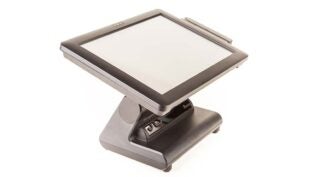How to Navigate High Speed Internet Providers’ Spectrum of Services
By: Merin Mathew

When it comes to high-speed internet service providers, the fastest option is not always the best, especially for your wallet. Techies are drawn to fiber-optic internet like a moth to the flame, but is it really the best option for you? Maybe. Maybe not.
And what if you are part of the 75% of Americans who can’t get fiber-optic internet even if you wanted to?
Types of Broadband Connections
Chances are, you already know the differences between DSL, cable, satellite, and fiber broadband connections. But sometimes we are so deep in AI, coding, crypto, and so on that the simple stuff gets lost. So, let’s do a quick rundown on broadband basics.
- DSL (Digital Subscriber Line): DSL is like the kid who was the first in the dial-up family to go to college. You still have to listen to the short robotic conversation that gives you the urge to watch Wall-E every time you log in, but your ma can call you on your landline while you’re surfing the world wide web. No more lost connection because ma wants to know if you’re bringing your laundry when you come over for meatloaf.
- Cable: The Honda Civic of broadband connections, cable will zip you around town without a monthly payment equivalent to one month’s rent. And, depending on who’s behind the wheel, it can give fiber a run for its money when it comes to speed. Some service providers’ cable internet speeds are faster than their competitor’s fiber-optic speeds.
- Satellite: Sometimes the only option for rural-dwellers, Satellite internet can bring big-city speed to country living. It’s a bit pricey to get your internet connection from outer space, but there are usually some great TV bundling options.
- Fiber: The equivalent of a four-wheel-drive truck, even though most people don’t drive off paved roads. But people don’t like limits. And fiber-optic will get you off-roading over any digital mountain you wish to climb without so much as a speedbump.
Download and Upload Speeds for Different Broadband Connections
MMORPG fans salivate over fast upload speeds, but most people get hung up on download speeds. Worrying about download speeds is enough if your biggest concern is binge-watching the latest Amazon original series. But if you work (or game) from home, you’ll need to concern yourself with upload speeds.
| Internet Connection | Download Speeds | Upload Speeds |
| DSL | 5-35 Mbps | 1-10 Mbps |
| Cable | 10-500 Mbps | 5-50 Mbps |
| Fiber | 250-1,000 Mbps | 250-1,000 Mbps |
Fiber is the clear winner when it comes to upload speeds. But again, fiber isn’t available in 75% of the country. So, what’s a gamer or work-from-homer to do?
Well, believe it or not, the Federal Communications Commission (FCC) only recommends download speeds of 12-25 Mbps for standard households with multiple internet users who love streaming, with upload speeds at half that. I can hear you scoffing from here, but most users can happily get by on that.
But let me guess, you’re not like most internet users.
If you double, triple, or use 20x the recommended amount, you still fall within the typical range for cable high-speed internet speeds. So, before you spring for Fiber or cry over its unavailability, ask yourself, “Do I really need 20x more than the average household?”
Which Type of Internet Should I Get?
When shopping for internet, most people begin by asking which type of high-speed internet they should get. They dive into a rabbit hole of Fiber-optic vs. Cable. But really, they should begin their search with what service providers and internet connections are available in their area.
Chances are, you only have one or two service providers to choose from, three if you’re lucky. And those service providers offer different internet services that vary not just from city to city, but from neighborhood to neighborhood. As mentioned once or twice before, 75% of people will be only choosing between cable, cable, cable, or satellite.
Which type of internet you should get is pretty much decided for you. But you may have some choice when it comes to a service provider.
The Real Question: Which Service Provider Should I Go With?
For whatever reason, customer reviews of internet service providers are comparable to those of insurance companies: they are almost all negative. It’ll quickly seem like you have to choose between the lesser of two evils.
As dreadful as it may sound, the best course of action is to get on the phone and call the available internet service providers in your area. Not only will you get a feel for their customer service, but you’ll also get direct answers specific to your neighborhood.
Questions to ask when internet shopping:
- Are you offering any specials?
- What equipment and installation are included?
- What realistic speeds can I expect, regardless of what the website promotes?
- Do you have “peak use” times?
- Can I change plans before my contract expires?
- Is there a cancellation fee or other fees I should be aware of?
- Do you include anti-virus or anti-spyware software with your service?
If you really want to test their customer service, you can use a friend’s account to call their technical service line and have them walk you through a “problem” you’re having with your internet connection or speed. If the best they can do is tell you to turn it off and then back on, move on to the next service provider on the list.
The Broadband Takeaway
If Fiber-optic is available in your area, it should certainly be a contender when shopping for internet. If its pricing is reasonable compared with cable, then why not get the shiny red sports car of broadband? But be sure to compare the speeds and pricing to that of cable, because it still outshines Fiber-optic in some locations.
If you’re in the majority, and fiber-optic is not available in your area, don’t despair. You don’t need to move to a big city to work from home or play your favorite MMORPG. Cable technology is fast, reliable, and probably more than you need. So even though you may be dreaming of zipping through virtual highways on fiber, good old cable internet will get you where you need to go.
Finding a reliable high-speed internet service provider is possible and easier than customer reviews let on.
2985 Views












